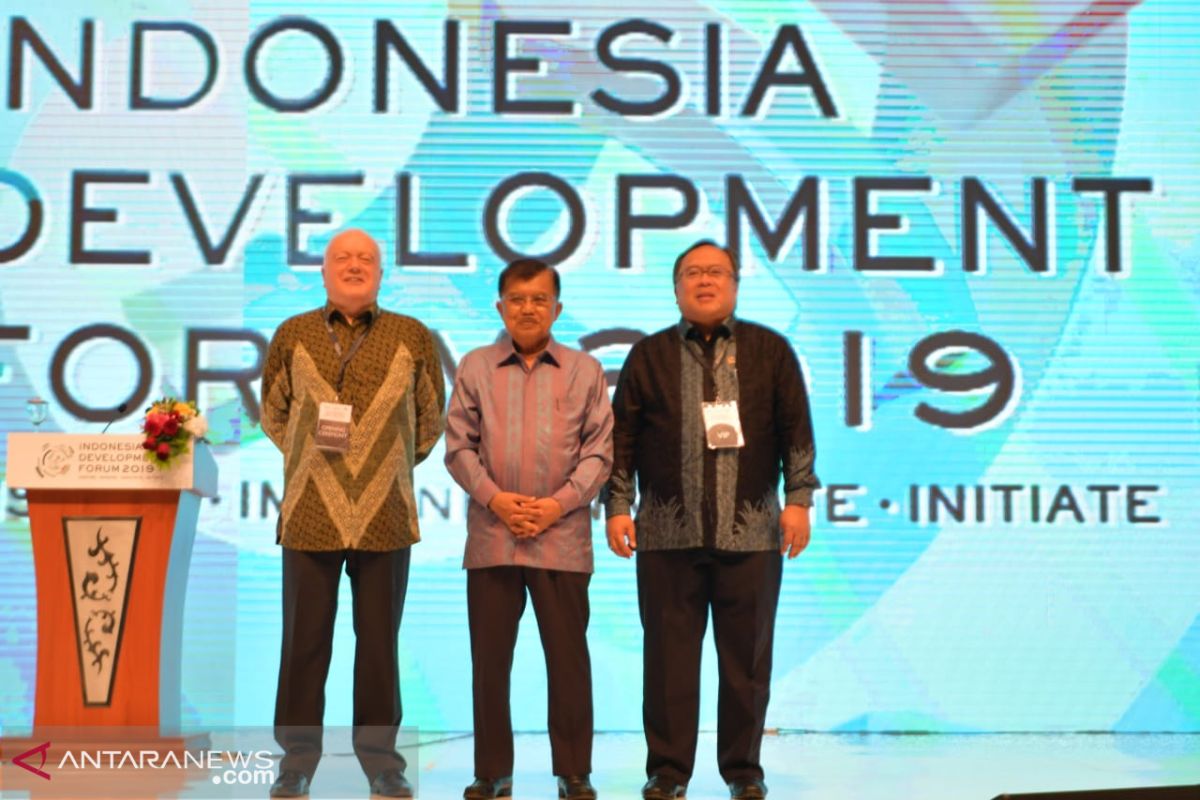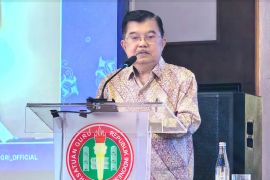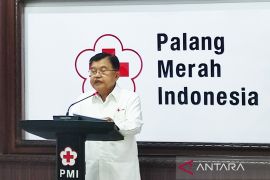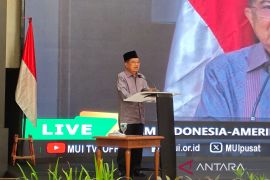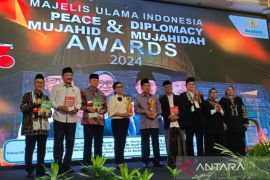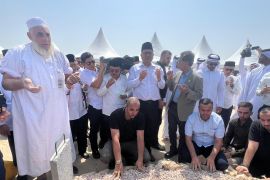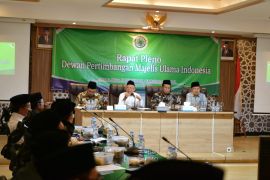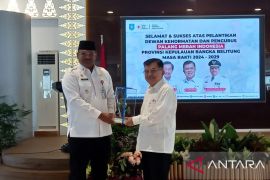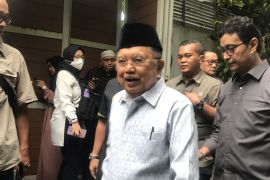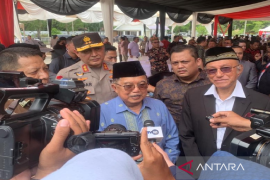"We do not want to be just the consumers of technology. In its place, we must also be part of the innovation. Technology indicates an advancement, but it is also a challenge, as it changes human life and behavior," Kalla affirmed here on Monday.
Addressing the opening ceremony of the 2019 Indonesia Development Forum (IDF) held at the Jakarta Convention Center (JCC) in Senayan, Central Jakarta, the vice president pointed out that innovation in Indonesia can only be enhanced if its human resources are good and capable.
Indonesia would be able to have a pool of well-trained and educated human resources only if it were to improve the quality of education for its people, Kalla emphasized.
The fact that Indonesia braces for a demographic dividend, with the number of people from the productive age group surpassing that of the non-productive one, should become an added value for youngsters to drive the growth of the country's innovation, he remarked.
"Challenges posed by advancements in technology must be responded to by providing adequate well-trained and educated human resources. Members of the young generation, who are attending this event, do not just face the challenges but are also demanded to offer solutions," he affirmed.
Hence, Kalla reiterated that this IDF was expected to encourage young Indonesians to continue to come up with initiatives and apply them to produce effective works of innovation to boost Indonesia's national development, Kalla stated.
At this event, National Development Planning Minister Bambang Brodjonegoro noted that the IDF was aimed at facilitating the participants to exchange and share ideas in a common endeavor to find apt development patterns in Indonesia.
Amid the real challenges of rapid global technological developments and demands of the era of disruption, the quality of Indonesia's human resources varies, and it does not rank among the world' s most literate nations.
John W. Miller's study (CCSU, 2016) indicated that the top 10 most literate nations are Finland, Norway, Iceland, Denmark, Sweden, Switzerland, the United States, Germany, Latvia, and the Netherlands.
The study of Miller, a noted researcher of the Central Connecticut State University, further showed that Indonesia ranked 60th out of the 61 nations. Its rank was slightly better than that of Botswana but ranked far behind Singapore that stood 36nd and Malaysia that was placed 53rd.
Miller asserted that a nation's literate behaviors contribute to its success and failure in dealing with the demands of the world's knowledge-based economics. Related news: Ministry encourages use of trenchless technology
Related news: The House approves science and technology bill
EDITED BY INE
Translator: Fransiska N, Rahmad Nasution
Editor: Fardah Assegaf
Copyright © ANTARA 2019
